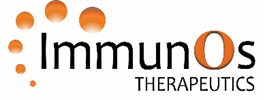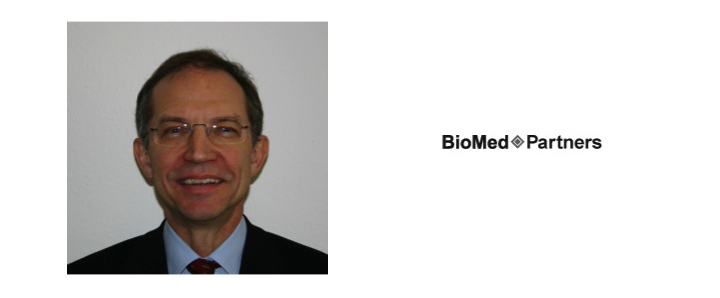Tag: venture capital
ImmunOs Therapeutics Raises $74 Million Series B Financing Round

– New investors Samsara, Lightspeed, Gimv, and Mission BioCapital further strengthen investor base and expand transatlantic footprint
– Company establishes U.S. subsidiary to accelerate international operations
ImmunOs Therapeutics AG, a biopharmaceutical company leveraging its HLA-based technology platform to develop first-in-class therapeutics for the treatment of cancer and autoimmune diseases, today announced the closing of an oversubscribed Series B financing round totaling $74 million. The round was led by new investors Samsara BioCapital, Lightspeed Venture Partners, and Gimv, and joined by new investors Mission BioCapital, GL Capital, PEAK6 Strategic Capital, and Fiscus Financial, as well as existing investors Pfizer Ventures, BioMed Partners, and Schroder Adveq. Read more…
Company News: Curetis Closes EUR 14.5 Million Extension of Series B Financing

– Curetis wins new investors QIAGEN and LSP-HEF, committing EUR 7 million
– Curetis well financed into 2017
Curetis AG, a developer of next-level molecular diagnostic solutions, today announced it has closed a EUR 14.5 million extension of its Series B financing round, which was originally led by HBM Partners in April 2013. All existing investors – aeris Capital, BioMed Invest, CD Venture, Forbion Capital, HBM Partners, LSP – Life Sciences Partners, Roche Venture Fund, management, a trustee-pool of Curetis employees and private angel investors – participated in the extension financing, investing EUR 7.5 million on a pro rata basis. QIAGEN and LSP Health Economics Fund (LSP-HEF) are joining as new investors, committing a total of EUR 7 million. The financing brings the total amount of equity raised by Curetis AG to over EUR 63.5 million.
In addition, Rudy Dekeyser of LSP-HEF will join Curetis´ Supervisory Board, while Hans-Guenter Hohmann will step down after being a Board member for the past six years. Dr. Martin Potgeter, Vice President Business Development of QIAGEN, will take an observer seat on the board as second representative of a corporate investor alongside Simon Meier of Roche Venture Fund and Dr. Karsten Fischer of BioMed Invest.
The financing is supported by the achievement of key milestones, e.g. several CE/IVD-marked products, an ongoing FDA clearance trial and a growing commercial distribution network across Europe. The European market introduction of both the Unyvero P50 Pneumonia and i60 Implant and Tissue Infection applications, allowing a faster and better diagnosis of life-threatening infectious diseases, has shown increasing traction. In addition, the company is in talks with several parties on granting future U.S. commercialization rights and further expanding the commercialization into Asia and other global markets.
akampion Meets… Dr. Markus Hosang, General Partner at BioMedPartners
Markus Hosang, General Partner at BioMedPartners, has a strong pharmaceutical and VC background. He was previously Venture Partner at MPM Capital. Prior to joining MPM in 2002, he was at Roche, where he served for nearly 20 years in several senior management positions in the Pharma R&D organization.
akampion: If you could give some advice to aspiring or very junior venture capital professionals, what would it be?
Markus Hosang: There are usually two approaches to becoming a venture capital professional. First, you can join as an Associate or Analyst pretty early on if you have a strong scientific background, combined with a business degree (MBA). The second route is gaining extensive management and executive expertise in big pharma or biotech companies and subsequently joining a VC firm as a Partner. In general, I believe that operational experience in pharma or biotech companies is very important if you want to succeed in the venture capital industry. Even Associates or Analysts should bring some years of industry experience, not just a strong scientific background.
When I was at Roche, I was fortunate to be part of an innovation-driven environment and management team of the company. Since then, I have always been attracted to pioneering industry trends – but I also had the chance to learn from failures.
akampion: So what are your investment criteria if you look at healthcare companies?
Markus Hosang: Data, science and patents have to be convincing. Equally important are growth perspectives and market environment. The third point, which is crucial and often overlooked, is the executive team – what are their strengths and weaknesses? Will they be able to deliver? In the past, I have often been disappointed by executives and founders with a pure academic background. On the other hand, if executives join a small company from big pharma, they need to prove that they can do without a huge corporate infrastructure. Will they be moving fast enough? But I also have to admit that I underestimated a few teams in the past.
akampion: What is the key difference between US and European companies?
Markus Hosang: In the US, there are clearly a lot more serial entrepreneurs who are very hands-on and pragmatic. There is a „done it before“ attitude. We don´t really have a serial entrepreneurial spirit in European healthcare yet.
akampion: What has changed in the healthcare industry over the past ten years?
Markus Hosang: The endpoints in biopharmaceutical drug development have definitely changed – not just at the FDA and EMA, but also in terms of reimbursement criteria. For investors, the emphasis has shifted even more to exit strategies and value inflection points. Exits happen earlier – often times, companies are factually being „leased“ by milestone-driven payments, which allow for staged acquisitions instead of buying a company as a whole.
akampion: What is your opinion on the current financing situation in Europe?
Markus Hosang: European private equity financings have been very generous in the past, but this has changed over the last couple of years. There is currently a shortage of funds in Europe, and as a result, there is a weeding out going on, which has even started to affect good companies. However, an excellent management team will source other funds and identify financing alternatives, such as grants. A good example here is Okairos in Italy.
akampion: At what stage do you invest in a company? And why did you choose to focus your investments on the Alpine region?
Markus Hosang: Before I consider an investment, the founders should have done their homework properly and also should have made some initial investments themselves. There must be a convincing business plan, maybe they have even won a business plan competition. The seed round must have completed successfully. Start-ups in Switzerland often hire mentors or advisors with a pharma background, which is a great advantage. The Alpine region is a very fertile ground. It has a very strong pharma industry and infrastructure, there are excellent universities and research institutions, and everything is located in the vicinity, easy to reach in a few hours. The latter point is particularly important for us as very active and involved investors, as it permits us to see our companies without too much (travel) efforts and on short notice, if required.
akampion: What motivates and inspires you in your daily work?
Markus Hosang: I very much enjoy applying my professional skills to a continuously broadening scope of activities. And I am thrilled to generate value and to keep track of a quickly developing sector, and perhaps, albeit indirectly, contribute to the solution of a still unmet medical need. Last not least, I love the collaboration and interaction between various teams and boards that I am on. Therefore, transparency and fairness are extremely important in my work.
Food for Thought: Big Jump in VC-backed US Biotech Funding
In the US, venture capital funding in biotechnology companies jumped 46 percent in the second quarter, according to a report by the National Venture Capital Association and PricewaterhouseCoopers LLC.
Biotechnology companies attracted $1.24 billion in 116 deals (about $847 million in 97 first-quarter investments), adding up to about $2.1 billion and 213 deals in the first half of this year. Funding for medical device and equipment makers gained 26 percent to $841 million in 90 deals in the second quarter .
At least 33 U.S. biotechnology companies were acquired during the first half of the year, for a total of $26.7 billion.

